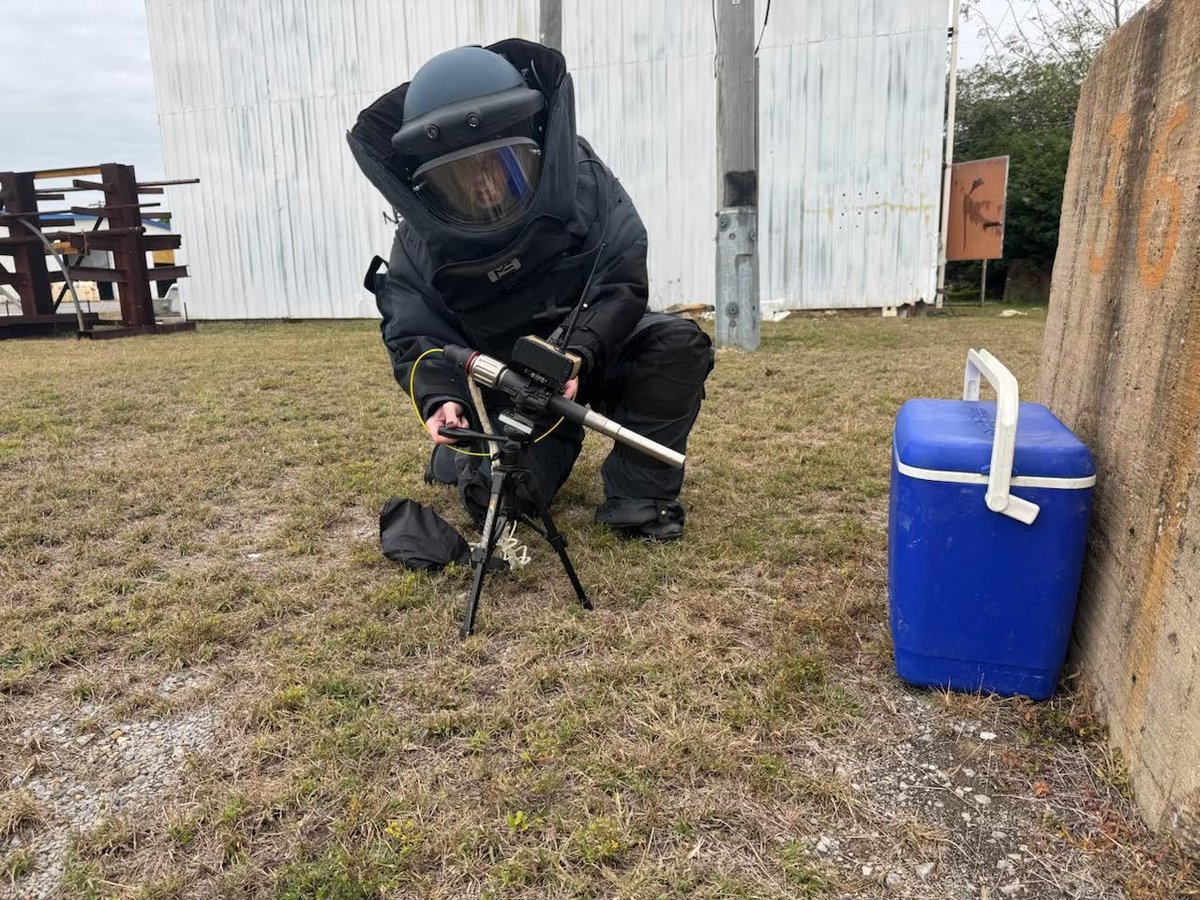One of only two female bomb squad technicians in Queensland, Jacinda Lawrence remembers the exact moment that reminds her why she does one of the country's most extreme jobs.
It happened on a Sunday morning callout a couple of years ago.
As she, and the Explosive Ordnance Response Team (EORT), worked to render a suspicious device safe, Lawrence braced herself for the inevitable complaints about the noise disrupting people's weekend lie-ins.
Instead, something extraordinary happened.
 Jacinda Lawrence is one of only two female bomb squad technicians in Queensland. Image: Supplied.
Jacinda Lawrence is one of only two female bomb squad technicians in Queensland. Image: Supplied.




























































































